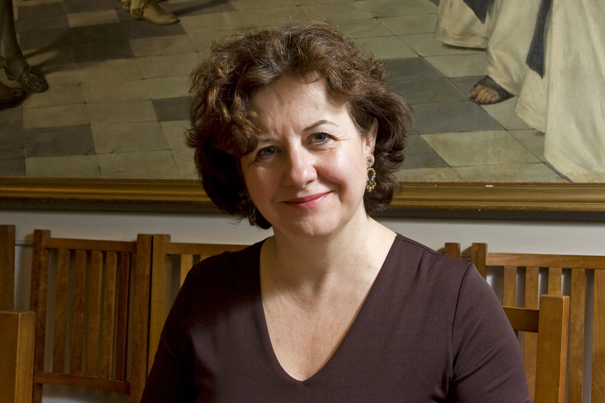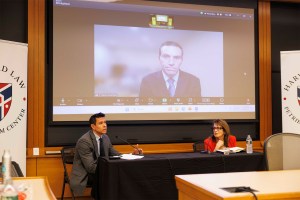Nation & World
-
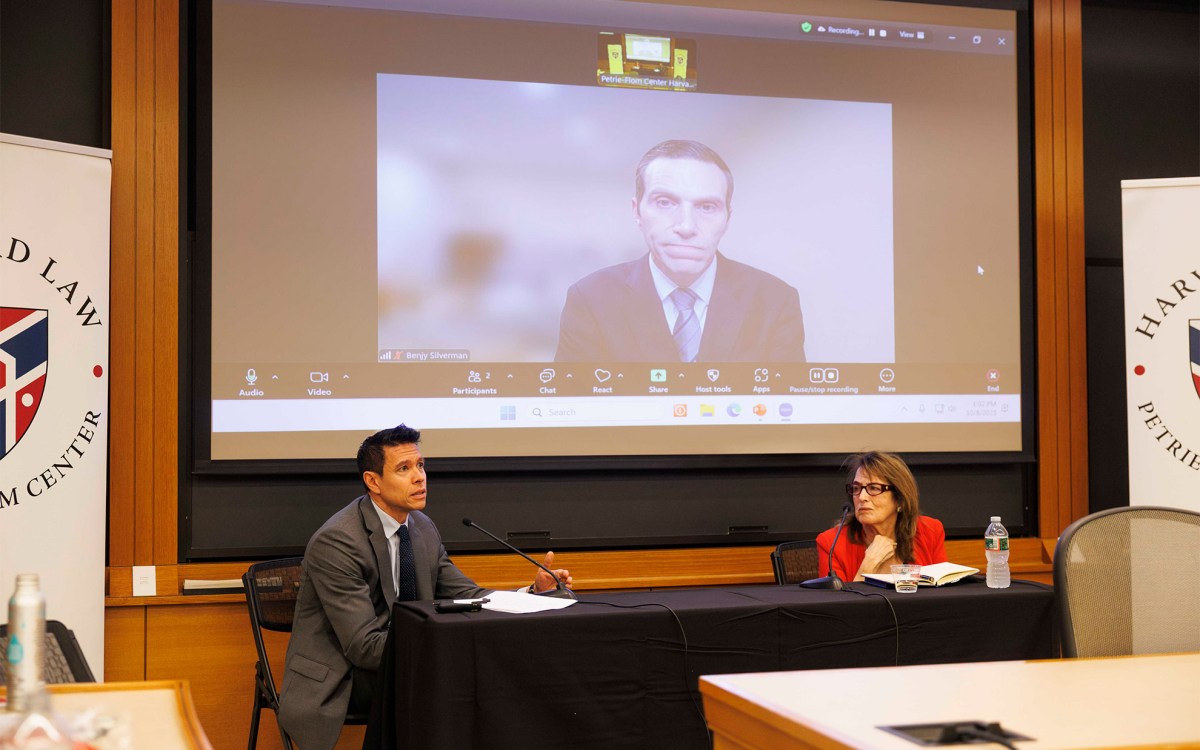
Time for mandatory retirement ages for lawmakers, judges, presidents?
Americans seem to mostly say yes; legal, medical scholars point to complexities of setting limits
-
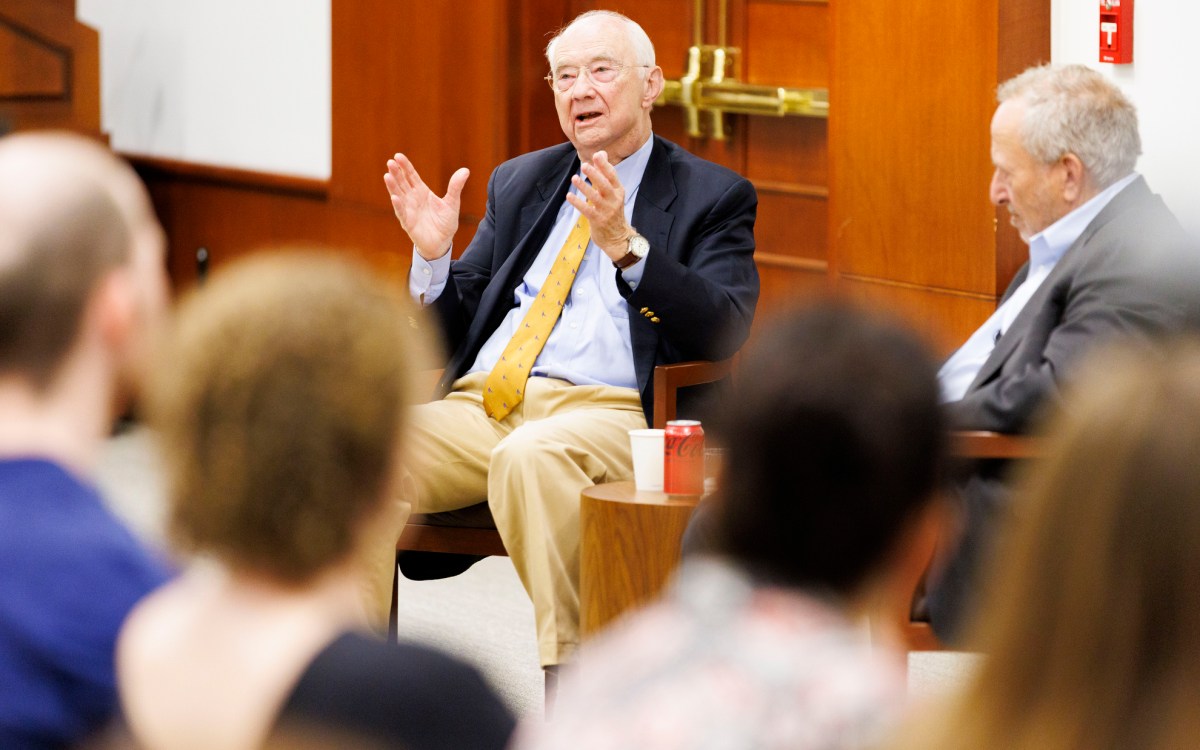
Rebutting ‘myths of inequality’
Former veteran legislator, economist Phil Gramm argues unequal distribution of wealth inevitable; policy to engineer level playing field is mistake
-

U.S. needs to keep its friends closer, Pence says
First-term Trump VP: ‘If America isn’t leading the free world, the free world is not being led.’
-

‘Vibes or hunches’ don’t help win elections
Political analytics conference convenes experts on voter trends, election forecasting, behavioral research
-

U.S. just didn’t get China, Bolton says
Asian nation now main economic, military threat to Western democracies, according to former national security adviser
-
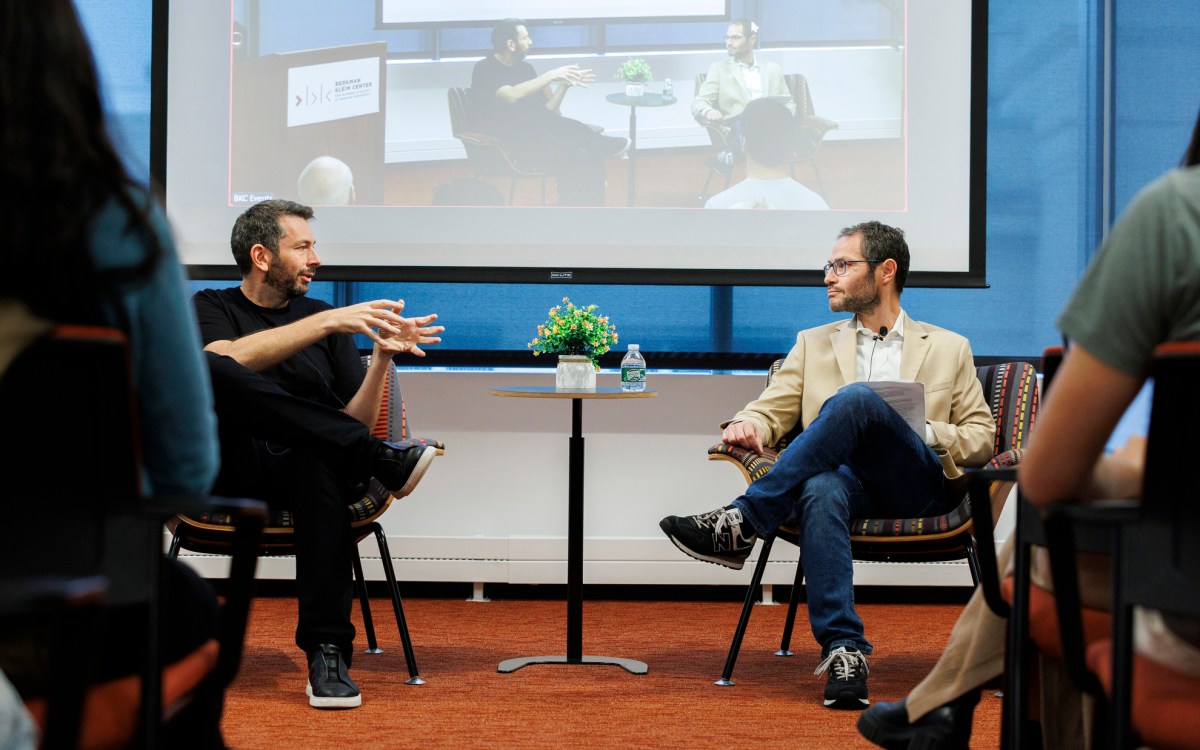
Artificial intelligence may not be artificial
Researcher traces evolution of computation power of human brains, parallels to AI, argues key to increasing complexity is cooperation
-
Strategist behind Obama campaign talks tactics at HKS
The architect behind Barack Obama’s successful presidential run shared his insights at Harvard Kennedy School on the strategies that propelled a first-term senator to the White House.
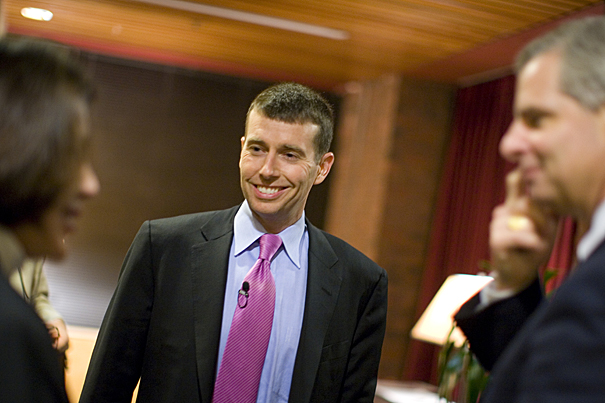
-
Interdisciplinary program on leadership hosts a host of fellows
Susan Leal intends to use her public sector expertise to address issues of water management and climate change. Former astronaut Charles F. Bolden Jr. is passionate about health care. Robert Whelan will likely turn his business acumen toward education.
-
‘What Just Happened? What’s Next?’
You might think of the little bits of good news that came out last week as the macroeconomic equivalent of the first crocuses of spring. There was the heartening word that initial jobless claims are slowing.
-
Petraeus addresses John F. Kennedy Jr. Forum
Gen. David H. Petraeus, chief of the United States Central Command, spoke at Harvard April 21, offering his perspective on leadership and lessons learned in Iraq, and his take on the United States’ strategy for the future security of Afghanistan and Pakistan.
-
Jocelyn Kelly: Seeking the whole picture of Congo violence
Jocelyn Kelly stood alone at the airport in Rwanda’s capital city of Kigali, wondering whether anyone would meet her.
-
Jennifer Scott: Being there for atrocity’s survivors
Jennifer Scott worked hard to become a doctor. But when she faced the ills of women in the Democratic Republic of the Congo, she realized her technical skills weren’t enough.
-
Harvard Kennedy School professors named 2009 Carnegie Scholars
Associate Professor Asim Ijaz Khwaja and Assistant Professor Tarek Masoud of Harvard’s John F. Kennedy School of Government (HKS) have been named 2009 Carnegie Scholars by the Carnegie Corporation of New York. The honorees were selected for their compelling ideas and commitment to enriching the quality of the public dialogue on Islam.
-
Congo: Just here suffering
Imani was just 15 when soldiers from the rebel group Interahamwe found her on the road in a remote region in the eastern Democratic Republic of the Congo (DRC).
-
Congo: Survivors sing of brutality and hope
The eastern DRC is swept up in a maelstrom of violence against women that has swirled for more than a decade. Researchers and physicians from Harvard and its affiliated hospitals are providing critical care for women fractured by their experiences.
-
-
Congo: The facts of gender violence
Researchers from the Harvard Humanitarian Initiative are working to understand the volume and impact of gender violence by analyzing data provided by survivors.
-
Congo: Panzi-HHI partnership
Harvard’s partnership with a Congolese hospital seeks to understand the causes of the violence against women that hangs like a toxic cloud over a huge swath of this enormous country in Africa’s midsection.
-
Despite years of study, schools’ success matter of contention
There wasn’t an empty seat in Askwith Hall Wednesday night (April 1) as students, educators, and researchers crowded in to hear “Informing the Debate: A Panel Discussion on Boston’s Charter, Pilot, and Traditional Schools,” sponsored by the Harvard Graduate School of Education (HGSE), the Rappaport Institute, and the Center for Education Policy Research.
-
HLS students help at-risk children to succeed in school
A witness to terrible domestic violence until the age of 8, “Jamal” still carries his worries into the classroom every day. Even though he and his mother are now safe, he’s unable to focus, frequently acts out, and has been suspended from third grade.
-
Harvard University Library awarded $5M grant from Arcadia Fund
Britain’s Arcadia Fund has awarded $5 million to the Harvard University Library. Arcadia’s five-year grant will provide flexible support for the library’s core functions: acquisitions, access, preservation, and dissemination.
-
The pogrom that transformed 20th century Jewry
On April 8, 1903 — Easter Sunday — a mild disturbance against local Jews rattled Kishinev, a sleepy city on the southwestern border of imperial Russia.
-
International Education Program fetes 10th anniversary
A politician intends to revolutionize the educational system in Kenya. A husband-and-wife team offers professional development to teachers to reduce social violence, develop civic competencies, and help eradicate poverty in Mexico. A student hopes to work on international educational reform.
-
Scholar enjoys wrestling ‘the Great Bear’
Some scholars are hard-pressed to identify what exactly drew them to their field. Others can point to a specific “aha!” moment when they found their academic calling. In Justin Weir’s case, it all began with a bit of bureaucracy.
-
Frank calls for (re) regulation
U.S. Rep. Barney Frank (D-Mass.), chairman of the House Financial Services Committee, came to the Harvard Kennedy School (HKS) Monday (April 6) to lay out a four-point program for re-regulating the nation’s financial system.
-
Cinematic reverberations
The writing of culture watcher and critic Louis Menand — Harvard’s Anne T. and Robert M. Bass Professor of English — has cast a wide net over the years.
-
Gail Mazur reads at Radcliffe
After removing her soaked red sneakers, Radcliffe Fellow Gail Mazur read aloud from new poems Monday (April 6) in dry black socks. The poet was undeterred by the onslaught of gray rain that thrashed Radcliffe Gymnasium’s windows — a fitting backdrop for Mazur’s charged, emotional poems.
-
Former prime minister of Spain explores ‘Role of Europe’
Jose Maria Aznar, the prime minister of Spain from 1996 to 2004, will deliver a lecture titled “The Role of Europe in the Geopolitical Context” at 5 p.m. Wednesday (April 15) in the Belfer Center’s Starr Auditorium at Harvard Kennedy School.
-
Experts get down to business at 2009 Humanitarian Action Summit
In December 2000, Dorothy Sewe and her family — fleeing tribal violence in Kenya — escaped across the border into Tanzania. In the first few days, all 17 huddled under plastic bags in the pouring rain. They camped outside the office of the United Nations High Commissioner for Refugees, begging for help.
-
Ash names Top 50 innovations in government
The Ash Institute for Democratic Governance and Innovation at Harvard Kennedy School (HKS) recently announced the top 50 programs of the 2009 Innovations in American Government Awards competition. The programs, which represent the best in government innovation from local, county, city, tribal, state, and federal levels, were selected from more than 600 applicants, and include 21 cities and towns, seven counties, one school district, 11 states, eight federal agencies, one tribal government, and one regional authority.
-
Finance scholar Chetty named professor of economics
Raj Chetty, a public economist whose work focuses on social insurance and tax policy, has been appointed professor of economics in Harvard University’s Faculty of Arts and Sciences (FAS), effective April 1.
-
HBS helps Jerusalem develop ‘competitive advantages’
The mayor of Jerusalem visited Harvard Thursday (March 26) and outlined a plan for his city’s economic future, one created with the help of Harvard Business School (HBS).
-
Playwright plumbs texts, ancient and modern
You know Noh, no? Chiori Miyagawa does. The Bard College playwright-in-residence, a Radcliffe Fellow this year, has steeped herself in Noh theater, a measured style of Japanese drama that dates back to the 14th century. It’s one of the many literary echoes — some old, some ancient — that she brings to her work. “I often time travel,” Miyagawa told a lecture audience March 16 at the Radcliffe Gymnasium. “It’s my favorite thing to do as a playwright.”
-
Picture this, and you will begin to understand
It has been almost 20 years since photographer Felice Frankel started working with scientists by helping them illustrate the intricate geometries of physical worlds too tiny to see. From the beginning, she was struck by one thing: To explain their ideas, scientists always start by drawing them. That gave Frankel an idea — “Picturing to Learn,” a project that requires students to draw basic concepts so that a senior in high school might understand them. Why is the sky blue? What do ions do?
-
Panel: Housing crisis is opportunity for action
When housing prices on Main Street tumbled last year — who doesn’t know this? — tremors rumbled all the way to Wall Street, and beyond. For the first time in 40 years of record-keeping, the median price of a single-family home declined. In six months, the value of U.S. housing stock dropped $3 trillion. Credit got tight; sales and housing starts slid.
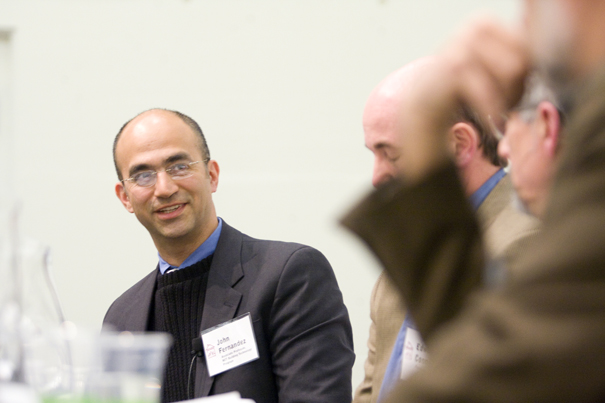
-
An attempt to define ‘academic excellence’
Michèle Lamont, Robert I. Goldman Professor of European Studies and professor of sociology and of African and African American studies, analyzes the system of peer review in her new book “How Professors Think: Inside the Curious World of Academic Judgment.”
